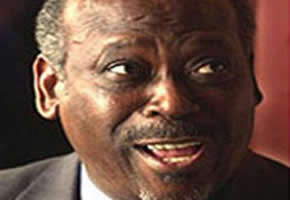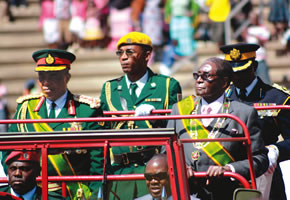Mdc formations buying time: Madhuku
the next polls, National Constitutional Assembly chairperson Professor Lovemore Madhuku has said.
Speaking at a public meeting organised by the Crisis in Zimbabwe Coalition in Harare last Thursday, Prof Madhuku said the issues raised by the formations were not resolvable.
“The other parties have also put issues in the (election) roadmap, which don’t seem resolvable. There are differences where political parties are talking about security sector reforms and ZEC (Zimbabwe Electoral Commission).
“These are key issues. To what extent will these matters be resolved before the next elections or should they be resolved at all. I know that politicians don’t want these issues to be resolved . . . I mean they are buying time. We must be alive to that fact,” he said. Prof Madhuku said it was also important for Zimbabweans to know that solutions to this country’s challenges were domestic.
“I want to say that the most important element coming from this discussion is that Sadc is not the one that will determine the solutions of issues here.
“They always say go back, sort yourselves and come up with something. Zimbabweans think that our solutions to the crisis in this country lie exclusively with Sadc,” Prof Madhuku said. He said it was important for civil society to get involved in governance issues. He said too much power was being given to politicians. For example the negotiators had come up with a document, which they signed and would be taken to the Luanda Sadc Summit.
“Where are they driving that power from? It is important that the rest of us get involved in the process. We cannot let the politicians continue to determine the direction of where we are going. Currently, the politicians are determining where we are going. Sadc will be helpful yes, but will not resolve issues. They will be resolved here,” Prof Madhuku said.
In his presentation at the same meeting, Ambassador Chris Mutsvangwa, said the issue of security sector reforms was an agenda of Zimbabwe’s former colonisers who wanted to effect an illegal regime change in Zimbabwe.
“The MDC formations used to be errant, they loved Paris, London and USA, but Sadc has now domesticated them and our security forces would not lose sleep if the MDC formations are in Tanzania, South Africa, Namibia or any other African country. We know these are our brothers and they will not allow war against us,” he said.
Ambassador Mutsvangwa said it was not easy to come up with a national army. “The most difficult thing to form is an army. People should always remember the origin of their vote. Don’t think that an army can be formed like a soccer team. The army is produced from an occasion and everyone has to respect the army,” he said.
Ambassador Mutsvangwa said it was important for local opposition parties to separate themselves from the country’s former colonisers. MDC-T spokesperson, Mr Douglas Mwonzora, said there was nothing wrong with calls for security sector reforms. He claimed the reforms were provided for in the Global Political Agreement.
“The security sector reform does not involve the change of command of the security forces. The reforms we are embarking on are the reformations to get rid of bias, partisanship and unprofessional behaviour of some of the security personnel. “In the GPA there is a provision for training security people on human rights.
“In the Defence Act, a Brigadier-General cannot prescribe when the next elections should be held or who should rule the country. In Luanda we are not going to relent on calls for security sector reforms,” he said.
MDC secretary general, Ms Priscilla Misihairabwi- Mushonga, said there was need for people to come up with a new strategy to deal with the issue of security sector reforms.










Comments